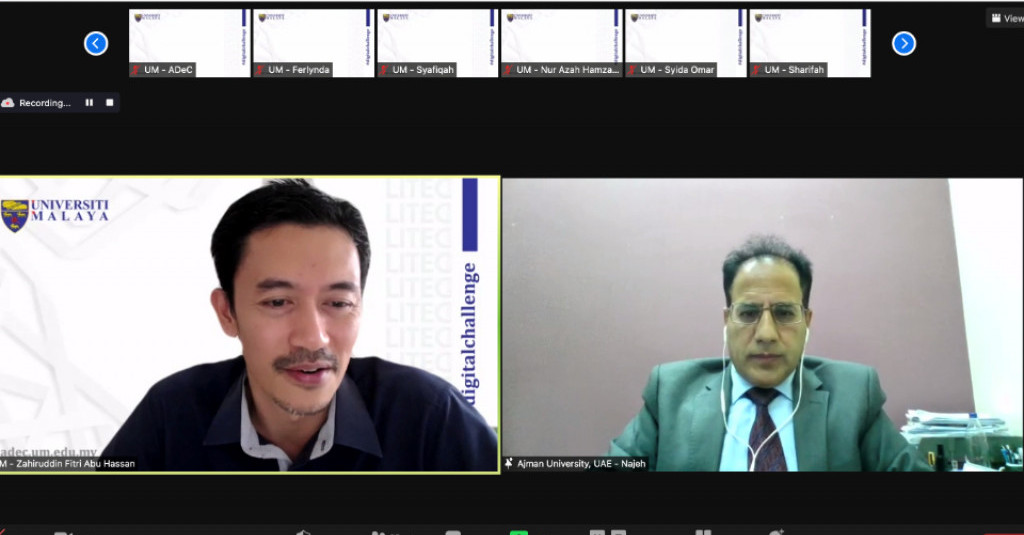Dr. Najeh Al Salhi Presents his Research Findings at Leading Education Conference in Malaysia

Dr. Najeh Al Salhi, Research Associate at Ajman University’s College of Humanities & Sciences recently participated in the Learning Improvement and Teaching Enhancement Conference (LITEC) held virtually by the Universiti Malaya, Kuala Lumpur.
LITEC 2021 focuses on gathering educators who are passionate in their Teaching and Learning research, to share their findings and best practices in adapting to the current trend in higher education. The conference theme this year was Digital Challenges in learning as a consequence of Covid-19 pandemic.
Dr. Najeh presented his research findings at the conference, focussed on ‘The Effect Of Using the (7e's) Learning Cycle Strategy in teaching Chemistry on the achievement of Secondary Stage Grade 12 Students in Jordan.’
Dr Najeh’s submitted abstract at the conference can be read below.
Abstract:
The Effect Of Using The (7e's) Learning Cycle Strategy In Teaching Chemistry On The Achievement Of Students Of The 12 Grade Of Secondary Stage In Jordan
Learning Cycle 7E model is a learner-centered model and emphasized examining the learner’s prior knowledge for what they want to know first before learning the new content. It is consists of stages of activities organized in such a way that students can master the competencies that must be achieved in learning by playing an active role. These stages are elicited, engage, explore, explain, elaborate, evaluate, and extend. The study aimed to investigate the effect of teaching chemistry using the (7E’S) learning Cycle strategy on academic achievement in comparison with the traditional learning for students in the 12 grade of secondary stage in Jordan. The study used the quasi-experimental method. The study sample consisted of (91) students in Tariq Bin Ziyad First Secondary School, which is one of the schools affiliated to the Directorate of Education in the Marka area in Amman, Jordan. They were divided into two groups: An experimental group consisting of (46) students who studied chemistry topics using the 7E's learning course. And the second group as a control group consisted of (45) students who studied the same content using traditional learning during the second semester of the academic year 2019/2020. In order to achieve the objectives of the study, a guide was prepared for the teacher using the (7E’S) learning strategy, and an achievement test was prepared according to the specification table.
After the statistical analysis of the results using (SPSS), the results showed that the students of the experimental group who studied via (7E’S) learning strategy were superior to the students of the control group who studied via traditional learning in the achievement test. Where is that there are statistically significant differences between the arithmetic averages of the students between the two groups of the study in favor of the experimental group. The study recommended several recommendations and suggestions.